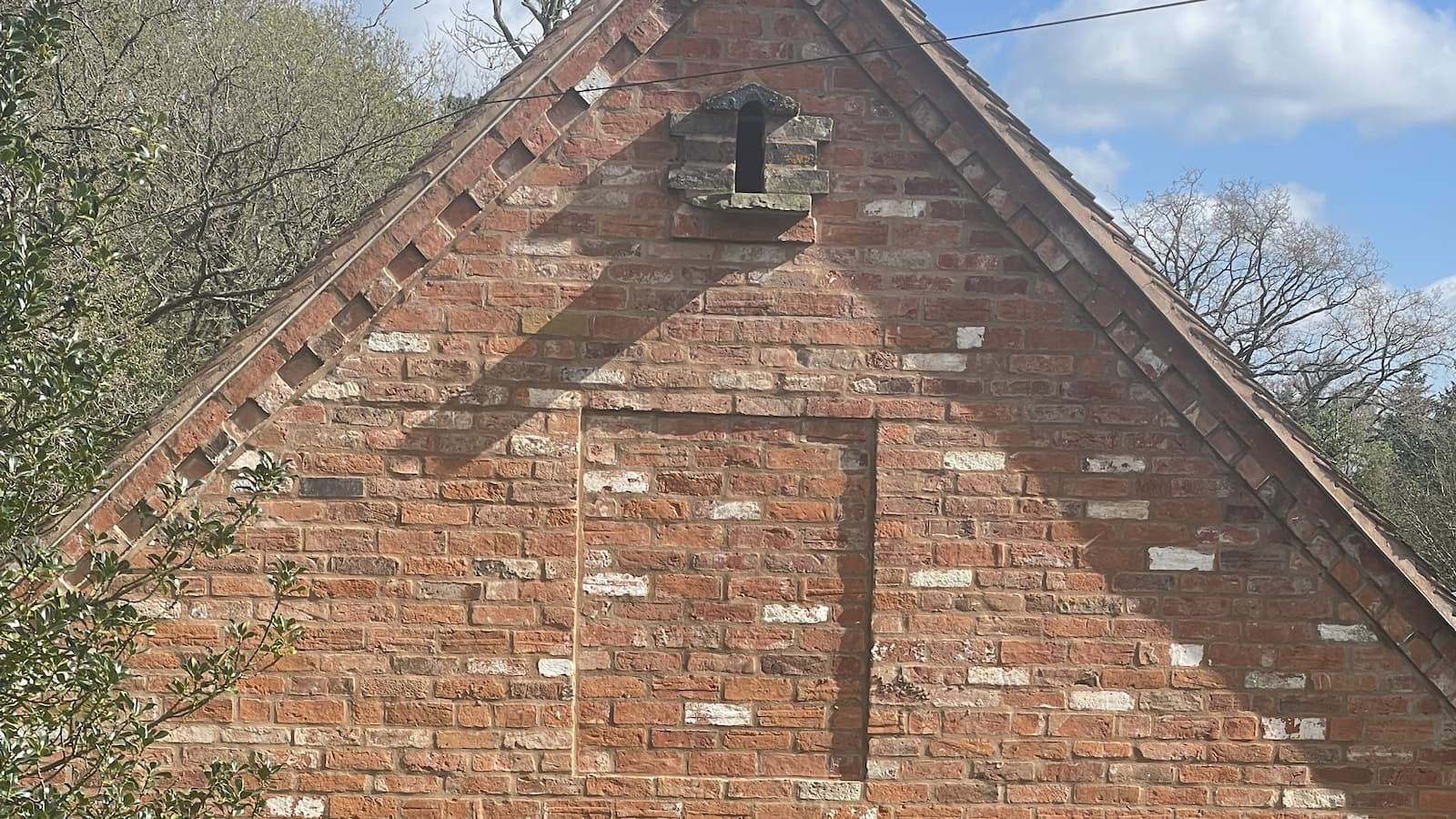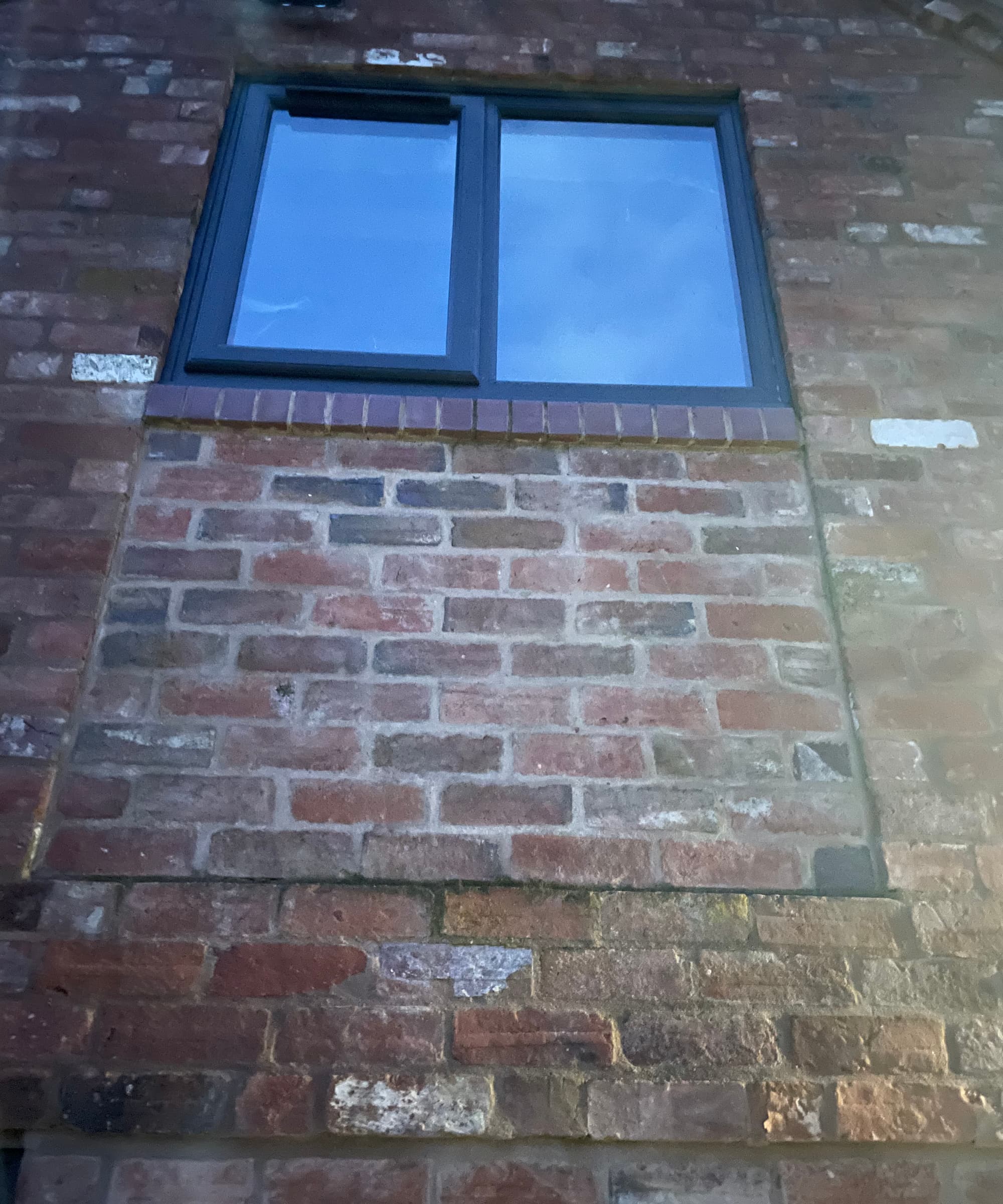Why do some newly-built houses have bricked-up windows?
The phenomenon has caused a swathe of online debate but we reveal the actual reason why new homes are bricking-up their windows

Bricked-up windows are a growing trend with newly-built homes, but while it makes sense on older properties, some may be scratching their heads as to why they are popping up on newer houses.
A range of theories have emerged online about the unusual build choice. These range from making a new build house look older by mimicking bricking up windows due to the now defunct window tax, to being cheaper than windows to install.
However, we reveal the actual reason homes are having this feature installed by speaking to an expert who reveals once and for all why bricked-up windows are typically "built in" to new builds when it comes to choosing window styles.
Historically used due to the Window Tax
Bricked-up windows are often found on historic buildings and dates back to homeowners bricking up their windows after the Window Tax was introduced into Britain in 1696.
With residents taxed on the number of windows they had in their homes, removing them and filling them in with bricks instead, made the tax more affordable, and is perhaps also where the phrase "daylight robbery" originates from. The law lasted until 1851 but many of the bricked up windows remained like that on older buildings due to the cost of putting the window back in.
But why, when there is no longer a Window Tax, add bricked-up windows to modern builds?
Theories for bricking up windows in new homes
There has been a spate of online theories as to why these new houses have brought back bricked-up windows.
Get the Homebuilding & Renovating Newsletter
Bring your dream home to life with expert advice, how to guides and design inspiration. Sign up for our newsletter and get two free tickets to a Homebuilding & Renovating Show near you.
One user on Facebook replied to a thread on the subject suggesting: "Developers add them because they think it looks more period authentic. Its to mimic old houses from when the Window Tax was in force in the UK 1696 -1851."
Another suggested that some developers use them "as 'features' because they're cheaper than windows".
The debate spread to Reddit where it was claimed: "I think they have a standard build from the architects, but the local placement doesn't allow a window (overlooking neighbours etc). Instead of just making a wall they follow the plan but block it off".
What is the real reason for bricked-up windows?

Geoffrey Gilbert, an experienced developer and self builder explained the actual reason why he and other developers use bricked-up windows.
He said it is often so they can be more easily converted into windows further down the line during the build, as the structural beam is already in place.
He explained: "They actually allow easy conversions for homes. If you wanted to install a window frame in there now (when it has been bricked-up) it makes it far easier to take out the brick and install when you want or need to.
"It means later in the development you can install it when you’re sure you want the window frame there and allows greater flexibility for when you choose particular window sizes."
Although bricking up windows can be used to circumnavigate some planning issues as windows can be objected to if they are looking into neighbouring gardens, this tends to not be the primary concern for developers.

News Editor Joseph has previously written for Today’s Media and Chambers & Partners, focusing on news for conveyancers and industry professionals. Joseph has just started his own self build project, building his own home on his family’s farm with planning permission for a timber frame, three-bedroom house in a one-acre field. The foundation work has already begun and he hopes to have the home built in the next year. Prior to this he renovated his family's home as well as doing several DIY projects, including installing a shower, building sheds, and livestock fences and shelters for the farm’s animals. Outside of homebuilding, Joseph loves rugby and has written for Rugby World, the world’s largest rugby magazine.
